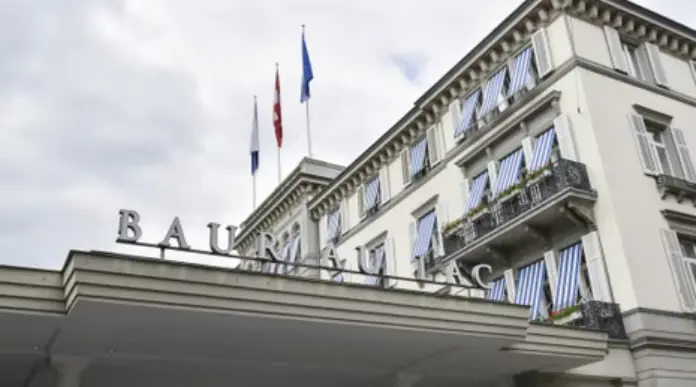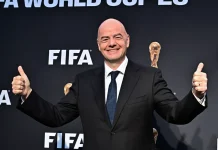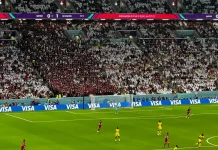The Fédération Internationale de Football Association (FIFA), once the undisputed guardian of the world’s most beloved sport, has seen its image eroded by years of systemic corruption. For decades, the elite at FIFA orchestrated not just international football tournaments, but also a complex web of illicit financial schemes that prioritized personal gain over the integrity of the sport. The unraveling of this scandal, which began with stunning arrests in Zurich in 2015 and led to jail sentences for prominent officials, marks one of the most significant corruption cases in global sports history.
The Shocking Scene in Zurich: FIFA’s Day of Reckoning
On May 27, 2015, the serene morning calm of Zurich was shattered as Swiss police officers stormed the opulent Baur au Lac hotel. Their targets: senior FIFA officials. Acting on a 47-count indictment issued by the U.S. Department of Justice (DOJ), the arrests were part of a sweeping investigation into decades of racketeering, wire fraud, and money laundering involving over $150 million in bribes.
Seven FIFA officials were arrested that day: Jeffrey Webb (FIFA vice president), Eugenio Figueredo, Eduardo Li, Julio Rocha, Costas Takkas, Rafael Esquivel, and José Maria Marin. The DOJ named 14 individuals in total—nine FIFA officials and five sports marketing executives—accusing them of accepting bribes and kickbacks in exchange for awarding lucrative media and marketing rights for football tournaments in the CONCACAF (North and Central America and the Caribbean) and CONMEBOL (South America) confederations.
The arrests marked a watershed moment, not only for international football but also for global governance in sport. It laid bare a culture of corruption that had become deeply institutionalized within FIFA’s upper echelons.
A Culture of Bribery and Greed
What the U.S. investigation and subsequent global probes revealed was staggering. FIFA, an organization tasked with protecting and promoting football, had evolved into a breeding ground for personal enrichment. Bribes and kickbacks were not isolated occurrences—they were standard practice. High-ranking officials funneled illicit payments through offshore accounts, often tied to deals for broadcasting and sponsorship rights for tournaments such as the Copa América, Gold Cup, and World Cup qualifiers.
One of the most damning examples involved former FIFA President Sepp Blatter and UEFA President Michel Platini. Blatter authorized a payment of 2 million Swiss francs to Platini, allegedly for consulting work done years prior—a payment that was undocumented, unexplained, and suspiciously timed just before a FIFA presidential election. Although both denied wrongdoing, the payment led to bans from football-related activities, casting a dark cloud over the leadership of world football.
Beyond individual scandals, systemic governance failures plagued the organization. The very structure of FIFA enabled unchecked authority, allowing top officials to act with little accountability. Oversight mechanisms were either weak or easily bypassed, creating an ideal environment for corruption to flourish.
The World Cup Bidding Scandals
Adding to the controversy was the awarding of the 2018 and 2022 FIFA World Cups to Russia and Qatar, respectively. Both decisions drew widespread criticism over alleged bribery, vote-rigging, and human rights concerns. Swiss authorities launched criminal investigations into the bidding process, suspecting that financial incentives may have swayed the outcome. These accusations fueled global skepticism about FIFA’s commitment to fairness and transparency.
Many questioned how Qatar—a nation with no previous World Cup participation and extreme summer temperatures—could win the bid. Allegations surfaced of massive payments to sway votes, raising broader concerns about geopolitical influence within FIFA.
Legal Fallout and Jail Sentences
The legal consequences of the scandal were significant. Several officials faced criminal charges in the United States, with some receiving substantial prison sentences. José Maria Marin, the former head of Brazil’s football association, was found guilty in 2017 of racketeering conspiracy, wire fraud, and money laundering. In 2018, he was sentenced to four years in prison, fined $1.2 million, and ordered to forfeit over $3 million.
Juan Ángel Napout, the former CONMEBOL president, also faced a similar fate. He received a nine-year prison sentence for accepting millions in bribes. Other officials pleaded guilty, cooperated with investigators, and received reduced sentences. Some, like Manuel Burga of Peru, were acquitted by U.S. juries.
The prosecutions represented a landmark in the international accountability of sports officials, establishing that corruption in sports governance would no longer be tolerated by legal authorities—especially when the schemes affected American companies and financial systems.
FIFA’s Internal Cleanup and Institutional Reforms
In the wake of the scandal, FIFA launched an extensive internal investigation, reviewing more than 2.5 million documents and conducting numerous interviews. A comprehensive report exceeding 1,300 pages—accompanied by over 20,000 pages of exhibits—was shared with both U.S. and Swiss authorities.
FIFA’s new president, Gianni Infantino, pledged to restore the organization’s credibility. He spearheaded reforms, including term limits for officials, stronger ethics committees, and enhanced transparency measures. The organization also distanced itself from previous practices, relocating key meetings away from the luxurious Baur au Lac hotel, which had become a symbol of FIFA’s corrupt past.
However, many observers questioned the sincerity and effectiveness of these reforms. Critics argued that FIFA’s structure still concentrated too much power in the hands of too few, and that the reforms lacked rigorous enforcement.
Legal Turmoil in Switzerland
The ripple effects of FIFA’s corruption scandal extended beyond the organization itself. Switzerland’s top prosecutor, Michael Lauber, who was overseeing FIFA-related investigations, was accused of misconduct. Secret, undocumented meetings with Infantino led to disciplinary proceedings, with Lauber eventually forced to resign.
Even Infantino himself came under legal scrutiny, facing criminal proceedings over suspected breaches of official secrecy and abuse of office. These developments suggested that the rot extended beyond FIFA into the institutions meant to hold it accountable, raising alarms about conflicts of interest and abuse of power within Swiss legal authorities.
Football’s Reckoning and the Road Ahead
The FIFA corruption scandal—from the shocking Zurich arrests to prison sentences handed down in U.S. courts—exposed more than just individual greed. It laid bare the structural flaws, weak governance, and culture of impunity that had taken root in one of the world’s most influential organizations.
While some accountability has been achieved and reforms introduced, the shadow of past corruption still looms large. FIFA’s leadership faces the dual challenge of rebuilding public trust and ensuring that such scandals never repeat. As football fans around the world demand integrity and fairness, FIFA must prove that it is not just a governing body—but a steward of a sport that unites billions.
Only through sustained transparency, vigilance, and global cooperation can FIFA truly move from scandal to redemption—and from Zurich’s luxury suites to a reformed future for world football.













